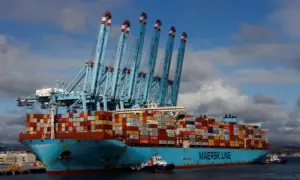China launches anti-dumping probe into Australian wine imports
BEIJING/SYDNEY (Reuters) - China said on Tuesday it has begun an anti-dumping probe into imports of Australian wine in a move that will likely worsen tensions between the two countries and knocked a fifth off the market value of Australia’s biggest winemaker.
The investigation by China’s Ministry of Commerce (MOFCOM) will look at imports of wine from Australia in containers holding two litres or less in 2019, the ministry said in a statement. It would also examine any damage to the Chinese wine industry from 2015-19.
The probe was requested by the Chinese Alcoholic Drinks Association, which asked the regulator to look into 10 Australian wine producers, including Treasury Wine Estates (TWE.AX), the maker of Penfolds, and Accolade wines.
Shares of Treasury, the world’s biggest standalone winemaker, fell up to 20% as the industry and investors worried about the prospect of a possible import tax on Australian wine.
The company said in a statement it would cooperate with any requests for information from the authorities and remained committed to China as a “priority market”.
The probe comes against a backdrop of increasing tensions between the countries after Canberra called for an international inquiry into the origins of the novel coronavirus.
China is the top market for Australian wine exports and is also Australia’s largest trading partner, with two-way trade worth A$235 billion ($170 billion) last year.
Beijing recently imposed dumping tariffs on Australian barley, suspended some beef imports and warned Chinese students and tourists it wasn’t safe to travel to Australia because of allegations of racism.
Australia’s Minister for Trade Simon Birmingham called the investigation “very disappointing and perplexing” and said China was also considering a request to investigate countervailing duties, an import tax imposed to prevent dumping or counter export subsidies.
He told reporters he had not spoken with his Chinese counterpart, or other senior Chinese government officials, since May when he requested discussions in light of the barley tariff.
PRICE CONCERNS
The China Alcoholic Drinks Association said Australian wine producers had cut their prices and were taking market share from local companies, which had seen a rapid deterioration in production and operating conditions.
China’s imports of Australian wine more than doubled to 12.08 million litres between 2015 and 2019, the association said. The price of imports fell 13% to $6,723 a kilolitre, it added, citing Chinese customs data.
Over the same period, the market share of domestic wine fell from 74.4% to 49.6%, it said.
Australian industry figures show the country sells more wine to China than France, exporting A$1.1 billion ($795 million) of product in 2019/20 for a 37% market share of China’s imports by dollar value.
“The export data doesn’t support any facts that we’re dumping wine,” said David Harris, managing director of South Australian Wine Group, which was named in the investigation.
“Our wine’s more expensive than virtually any wine-exporting country in the world,” he added.
Tony Battaglene, chief executive of industry body Australian Grape & Wine Inc, said China’s move was unexpected and could lead to a tariff being applied to all of the roughly 1,200 Australian winemakers which export product to China.
“As in the barley case they can apply a tariff across the board,” he said. “It can apply at a company level and at a national level. It would be detrimental, there’s no doubt about it.”
Australian wine exporters including Treasury faced blocks and delays in 2018 when Chinese customs officials held up shipments. Relations were strained at the time after the Australian government accused Beijing of meddling in domestic affairs.
Fund manager Macquarie Equities said it was reviewing its investment rating of Treasury Wine due to “increased geopolitical risks”, and warned of the possibility of additional tariffs.



















Comments are closed on this story.